Meerim is 80 and she believes in love.
So much so that one day in 2004, she decided to break the rules. She was 60 – the age in which a Kyrgyz woman becomes a powerful and respected figure in her community. She held the authority to give orders to the younger women in the family – and the power to break a life. She left her home prepared, walked a few dozen metres, then crossed the threshold of her relatives’ humble home. The invitation extended to Meerim reflected their respect and trust in her. But she entered their home to betray this trust. She felt she had no choice. She would rather do that than betray herself.
The girl was already there, seated in the living room, unaware of what was to come. Beside her was Meerim’s relative, a girl her age, who had lured her to the house under the guise of a friendly a chat. It was a common tactic, one that rarely raised suspicion. A tactic Meerim knew all too well. A friend or relative would invite the young woman over, promising casual conversation over tea and dried fruit. Instead, she would be met with a ritual that would change her life in ways she had never agreed to.
Meerim glanced at the girl and anxiously waited for the perfect moment. As the other women bustled about, distracted, she quietly approached her and gently revealed the flap of her shirt. Sawn into the shirt was a note that read: “Run! They want to take you.” The girl ran, fleeting before anyone could stop her, racing for her life to escape her fate. Her family lived nearby, and she reached home before it was too late.
What she escaped was a ritual where a group of women, including respected elders, would veil her with a white scarf called a jooluk. For some, it symbolised purity and innocence; for others, it represented pain, submission and shattered dreams. Accepting the veil would signal her consent to be taken as a wife by a young man of the house, often someone she had never met or seen.
Rejecting the veil, at least initially, was expected. The girl was supposed to resist, to fight for her freedom, showing she could not be easily convinced. Her protests increase her value. But she should not resist indefinitely. The elderly women are there to remind her that rejecting the veil would bring shame to her family, tarnish her purity in the eyes of other men, and disrespect the rules of the community.
Those girls met by elderly women might be considered the lucky ones. Others are seized from the streets, forced into cars and kidnapped by a group of men led by the husband-to-be. Some are subjected to sexual violence and in the eyes of their community, stripped of the “honour” they were expected to protect. The girl’s parents are unlikely to welcome her back, shamed by the stigma.
It is unclear where the practice, called ala kachuu, comes from, but it is not an ancient Kyrgyz custom. Historically, marriages among Kyrgyz nomads were arranged by parents, who negotiated the terms to ensure the groom paid a decent dowry, or kalym, worthy of his bride.
Ala kachuu, on the other hand, was a recourse for young men lacking the status or resources to secure their in-laws’ approval through a traditional dowry. For those without means, marriage remained out of reach.
But the kidnappings are often pre-arranged by a young couple unable to be together due to financial or other reasons. Parents who initially rejected their daughter’s chosen partner are likely to accept the union after the kidnapping to save their family’s honour.
The Soviet dream
Such an arrangement was not unthinkable for Meerim. “Romantic love makes life easier,” she says, “it makes life worth living”. She sits on a tapchan, an outdoor wooden platform, in her garden in northern Kyrgyzstan, gazing at the home she and her late husband caringly built over their forty years together. Unlike her neighbours in the village, Meerim always took care to make her home cosy and beautiful. Beyond tomatoes and cucumbers, she planted flowers and apple trees, transforming her backyard – home to chickens and cows – into a homey, idyllic haven.
She ensured her husband’s shirts were always neat and ironed and his shoes always polished. But she never grew to love him. Respect was all she could offer. In fact, she never experienced romantic love herself. In the winter of her life, Meerim reflects on her story haunted by nostalgia for unfulfilled dreams. She does not want her real name to be printed, as her words might be difficult for some of her relatives to accept. But she feels compelled to share her story.
Born in 1945, Meerim entered a world reclaiming peace after a devastating war, as the Soviet republics began to rebuild. Like many of her generation, she believed in the grandiose promises of communism. Raised in a village on the shores of the majestic Issyk-Kul Lake, surrounded by the mighty Tien Shan mountains, Meerim believed sheer determination could shape her into anything she wanted to be. But the small community that nurtured her was not enough for her ambitious spirit.
“I wanted to become a police investigator,” Meerim says with a laugh, as if her youthful dreams now seem absurd given the course of her life. “She would make a great detective,” adds her kelin, her daughter-in-law, and the wife of one of her sons, her friend and confidant.
After finishing school, sixteen-year-old Meerim moved to Bishkek, the capital, with dreams of joining the police academy. But arriving too late to apply, she pivoted without hesitation and enrolled in a weaver school. When it closed down, she got a job at a military factory, making wires and other parts for the army. She enjoyed her life and did not think of getting married or meeting a prince charming. She felt time was still on her side. She was living the life of an independent, young Soviet woman with a future full of possibilities ahead.
Meerim shared the same dormitory as her aunt, a married woman a few years her senior, who worked at the same factory. One evening, her aunt knocked on Meerim’s door, proposing a trip out of town to visit friends. Meerim was tired after the long week of work but eventually agreed. It sounded like a nice plan, and they did not have to work the next day.
The journey to the village wound through bumpy countryside roads, their car crawling so slowly that the 35 kilometres took several hours. By the time they arrived at midnight, the true purpose of the trip became chillingly clear.
“Four women entered the room and led me to a stool in the kitchen, behind a curtain. I knew what it meant. I tore the sling and protested. I did not want to get married,” Meerim recalls, her eyes brimming with pain. She was just nineteen.
Each time the women of the house tried to put the white scarf on her head, she tore it off, kicking the air and shouting in fury. Finally, she managed to escape. Fleeting through the village towards the road, desperate for rescue, Meerim stumbled upon a truck parked at the side of the road. The driver agreed to take her back to Bishkek, but before she could escape, a group of young men seized her, threw her into a car, and returned her to the house, prolonging her ordeal.
As punishment for her escape, one of the women took her long braid and cut it off – a harsh reprimand for a defiant, city-bred girl deeded too good for a village boy. A boy she still hadn’t seen. Her requests to at least meet him were ignored.
“I didn’t know what he looked like or if I’d even seen him before. I worried I wouldn’t like him, that he might be lame, for example,” she says. She can’t recall exactly how many days she resisted – probably three of four. When I ask why she eventually relented, she struggles to find a clear answer. “I was exhausted,” she says.
Meerim still remembers the price her husband paid her aunt for luring her to his village. It was 1964 and her freedom was worth 80 roubles – equivalent to a plane ticket from Moscow to Bratsk, a “Sputnik” bicycle, a pair of winter shoes or coat in a Bishkek store, or, with luck, a pair of black-market jeans. It was the monthly salary of a nurse.
A village girl
Her groom’s name was Damir, and was neither ugly nor lame, but the shame and humiliation of what happened never left her. As he later explained, he was looking for a girl who could endure the hardships of village life, which was not for the faint-hearted, as Meerim would soon discover. It struck her that her aunt had seen her as someone who fit that description. They tied the knot in a hurried ceremony and moved in with his parents. Bishkek, for her, was a closed chapter.
The first year of family life was challenging for Meerim. She spent her days working in the fields of the local collective farm and tending to animals. Yet, her anger lingered. She frequently argued with her in-laws, who expected an obedient and modest kelin to handle household chores without complaint. But Meerim was not easily subdued.
In the first year of her marriage, she lost a pregnancy and, while recovering in the hospital, her in-laws came to bring her home. She was allowed no rest. When Meerim gave birth to their first son, she persuaded her husband that it was time to move out of his parents’ house and start a new life as a family.
He agreed, and they soon moved into the house where Meerim still lives. It was a modest house in the heart of the village, but it was their own. Meerim was accustomed to hard work, and she vowed to herself that all the children she would raise in this house would have everything they needed, know love and sacrifice, and treat others with respect. Her sons would never abduct a woman, and her daughters would choose their own paths.
Life in the new home, however, was far from easy. Renovations demanded significant money and effort, and Meerim strove for perfection. She worked on the farm from dusk to late afternoon, twelve hours a day, while her son stayed in a nursery. He and other toddlers were brought to the fields twice a day to be breastfed. In the kolkhoz, as the collective farms were called, there was no time for maternity leave.
Soon after their marriage, Meerim’s husband began drinking heavily. Though he was never violent with her, she couldn’t tolerate his intoxication. His drinking squandered his potential and, with it, the possibility of a better life for her and their children. For 21 days, Meerim accompanied her husband to a nearby town to see a doctor who administered pills to treat his addiction. She didn’t know what they were, but they worked.
Her determination and support worked miracles. She persuaded her husband to pursue studies to gain new skills. In the meantime, she promised to manage the household and finances, and he knew she always kept her word. He enrolled in an agricultural technical school, where he learned how to bread cattle, skin animals, prepare meat, and other vital skills. After graduating, he secured a managerial position in the kolkhoz with a higher salary.
Soon after, they bought a new car. By the time Meerim was 31, she and her husband had finished rebuilding their house. They welcomed three more children – a boy and two girls. They became a model Soviet family that people admired.
Nonetheless, a secret always haunted them in all their interactions with colleagues and friends. Meerim’s husband, refused to disclose how they had met. They lived in a village where bride kidnapping was not uncommon, but the Soviet state had banned forced marriages, and love-based unions were the new norm. “He felt uneasy about it. He knew it was wrong, and he felt guilty,” Meerim says. “He felt he had treated me poorly by stealing me. He never wanted me to share our story with others.”
They also concealed Meerim’s depression. She doesn’t use the word, but her descriptions of her experiences leave little room for doubt. She has always felt unhappy. She believed that by working hard and devoting herself entirely to the family, she could fill the void in her heart and overcome her anger. But the pain never left her. Work only made it easier to cope. “I couldn't come to terms with what happened for a very long time; I suffered for many years,” she says.
For most of her life, Meerim slept only three or four hours a day. Even now, she rises early in the morning to do household chores, despite having Kumushay, her beloved kelin, who is as close to her as her own daughter. As we sit at the tapchan, Meerim ensures no men are present before removing her headscarf, a traditional covering for married Kyrgyz women. She takes out the pins securing her bun and lets her hair down. It is as long as it was when she first arrived in the village as a young, unsuspecting bride. She has never allowed anyone to cut it since.
New reality
When the Soviet Union collapsed, Central Asian states were left without their “big brother” and the Marxist-Leninist ideology that had governed public and social affairs. Each of the five newly independent republics in the region soon turned to its own traditions in search of answers and a new identity. Reports indicate that ala kachuu became more prominent in the post-Soviet era. The economic transformation was marked by poverty and uncertainty, leaving many young men without resources to get married.
Meerim disputes such claims, however. In the region where she has spent most of her life, bride kidnapping was widespread during Soviet times as well, and in her view, the practice has become less common over time. It is difficult to know for certain. Ala kachuu has always been underreported, as it is practiced within families, beyond the watchful eye of the state.
Meerim has always taught her children to believe in love and trust their feelings. “I always told them to marry whomever they want, and that they should fall in love,” she says. Both of her sons married for love, and she is proud to have raised them well.
After warning the bride-to-be back in 2004, Meerim lost the trust of some relatives. She was never invited to participate in the ritual again. But she has no regrets; she never wanted to attend those events anyway.
She looks at old photographs and some newer ones from weddings she attended in recent years. She pauses over a photograph of the women in her family. She points to those who were forced into marriage, survivors of ala kachuu spanning various ages. They are a minority, but a significant one.
She finally points at her own daughters, women she has always taught to follow their hearts. The elder, Dinara, a certified accountant, was twenty when she was kidnapped from a street in Bishkek in 1992. She worked in the tourism sector and had ambitious plans, much like her mother. Unlike the norm, Meerim would have welcomed her daughter back if she had chosen not to marry her kidnapper, but Dinara ultimately consented to the marriage. She still lives with her husband.
Meerim’s second daughter, Elnura, is divorced. She was kidnapped in 2001 in Belovodsk while returning home from work. She had started a job at a local brick factory having just graduated from university. It was Monday. The groom and his mother visited Meerim after the kidnapping to seek her blessing for the marriage. They had already persuaded Elnura. The man was a good father, Meerim says, but his drinking led to the marriage’s collapse.
In present-day Kyrgyzstan, bride kidnapping is illegal. In 2021, following several high-profile cases of bride kidnapping and violence against women, the government strengthened the law. Abducting a person for marriage is now punishable by up to seven years in prison, or ten if the victim is a minor.
In the past, police often refused to treat ala kachuu seriously. In one of the most tragic reported cases, in 2021, a policeman told a desperate mother whose daughter had gone missing that she should be patient, as the young woman had likely ran away with a man. Her daughter, Aizada Kanatbekova, a 27-year-old, had been stalked for months. She was later found dead in a car parked in a field outside of Bishkek, alongside her abductor who shot himself after killing her.
Following public outrage and legal reforms, police in Kyrgyzstan have reportedly begun taking ala kachuu cases more seriously. Yet it remains unclear whether these laws have reduced the practice. In the first six months of 2024, only six cases were registered, with five proceeding to court and one dismissed due to lack of evidence. In contrast, 251 such cases were reported in 2021. According to a 2018 inquiry by the Committee on the Elimination of Discrimination against Women, approximately 12,000 bride kidnappings occurred annually in Kyrgyzstan.
Recent changes at both global and national levels have not improved the quality of the statistics. After the 2020 revolution – the third in fifteen years – Sadyr Japarov was elected president and soon began to tighten the screws on independent media and western-funded non-governmental organisations.
Then, in 2025, Donald Trump returned to power in the United States and dismantled USAID, a government agency that has been a major donor to human rights and media organisations in Central Asia. Consequently, many women-focused groups in Kyrgyzstan lost their funding.
This year, spring arrived late, so it won’t be an abundant season for Meerim’s fruits and vegetables. Maybe that is for the best – Meerim will work less and have more time to rest. Before we say goodbye, she shares one final thought: she believes it all comes down to the elders. People like her are, who are respected in the community. Back in her day, bride kidnapping wasn’t considered a big deal – it was even encouraged. But that is not the kind of elder she wants to be. In time, regardless of political changes, there will be more people like her.
“Families should be built on love. If you love, you quarrel less. Life is worth living.”
*Some of the names in this story have been changed.





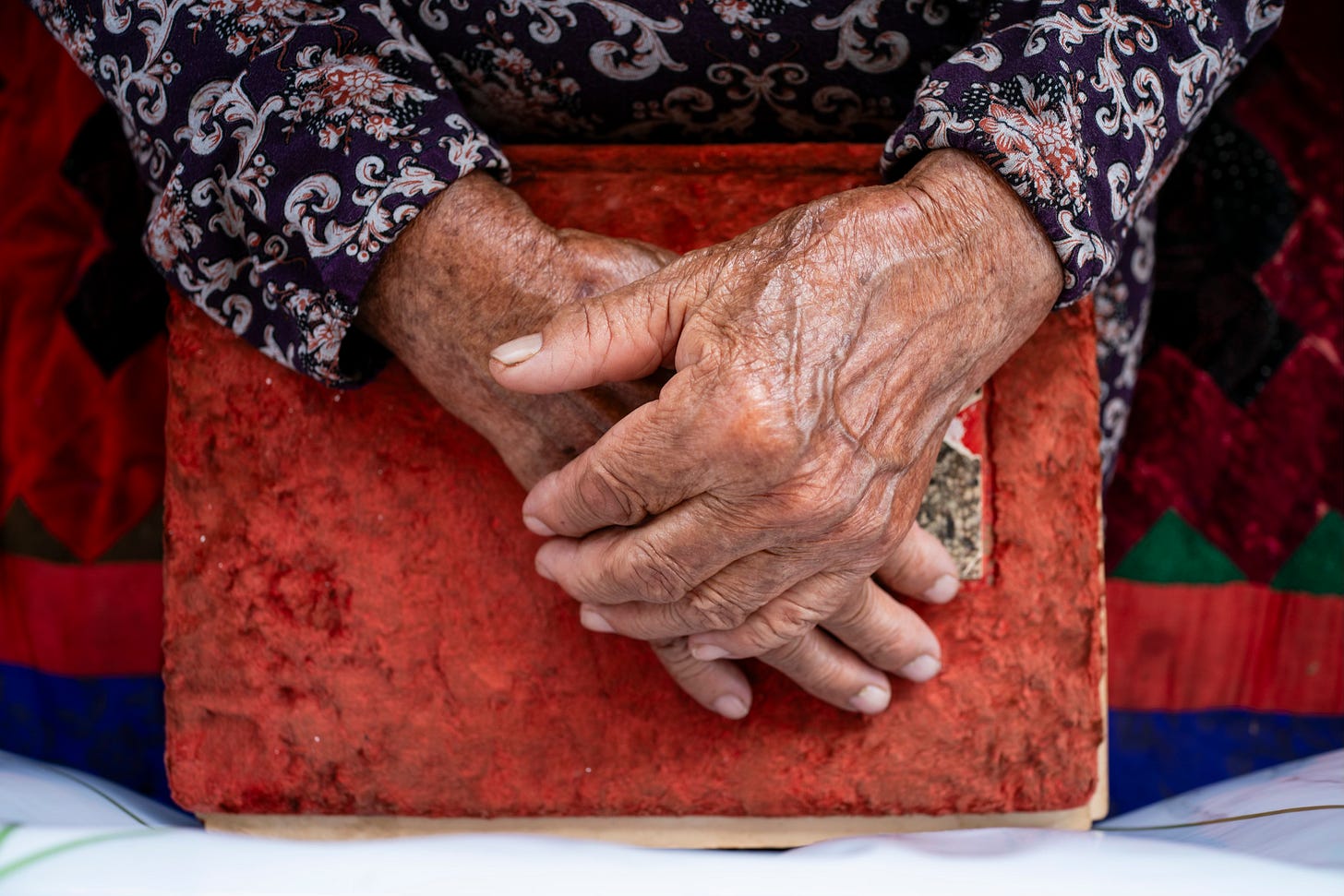
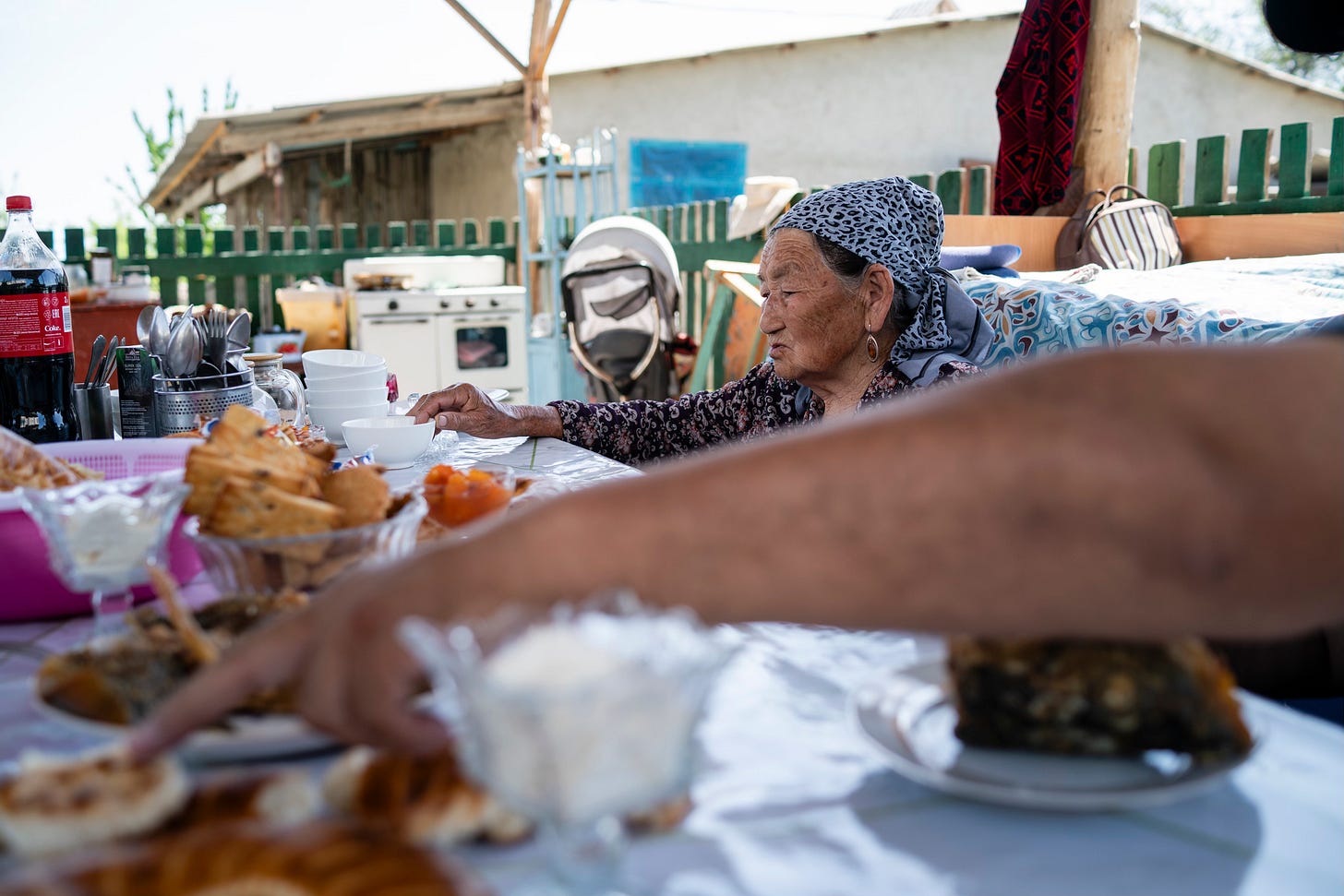
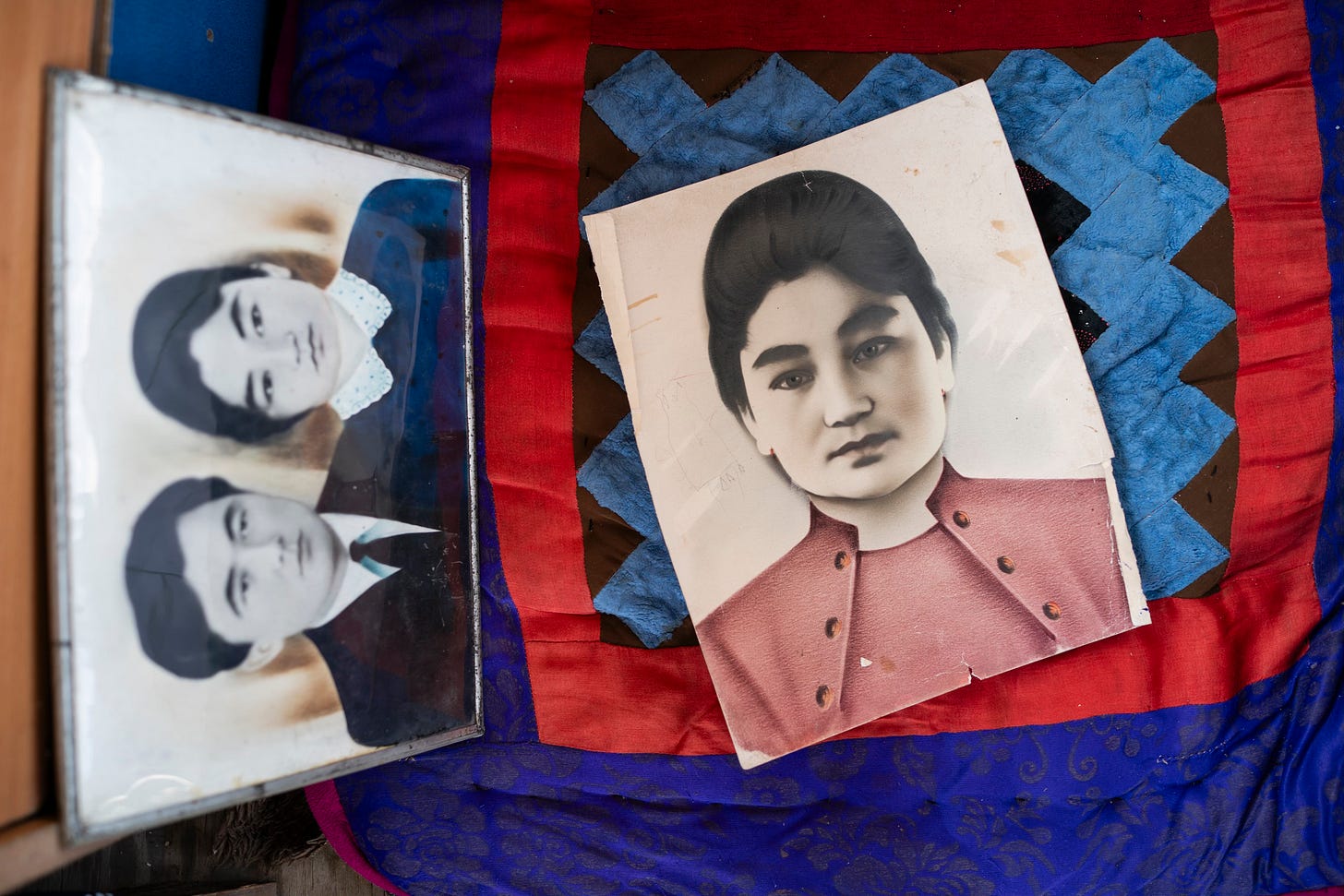
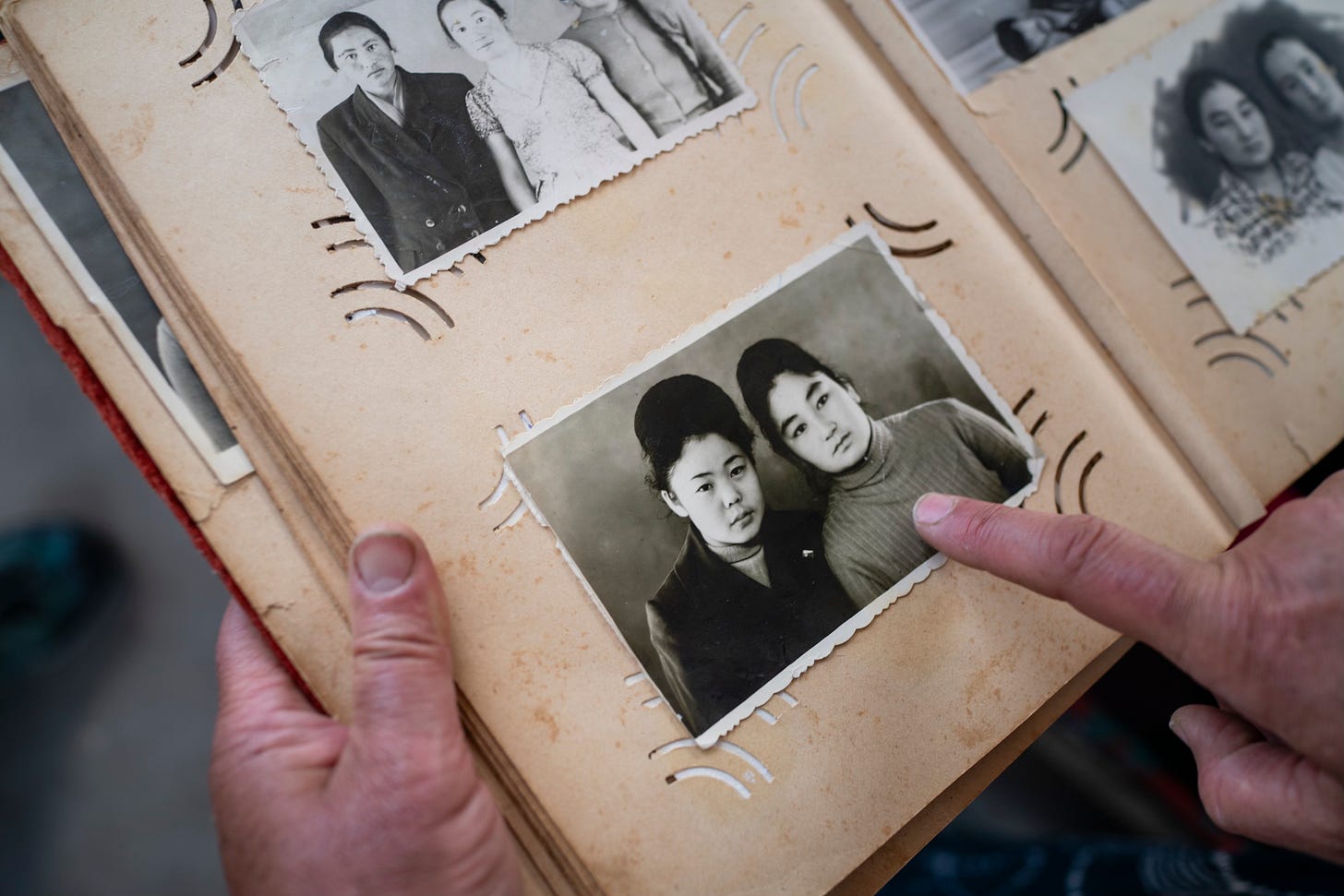
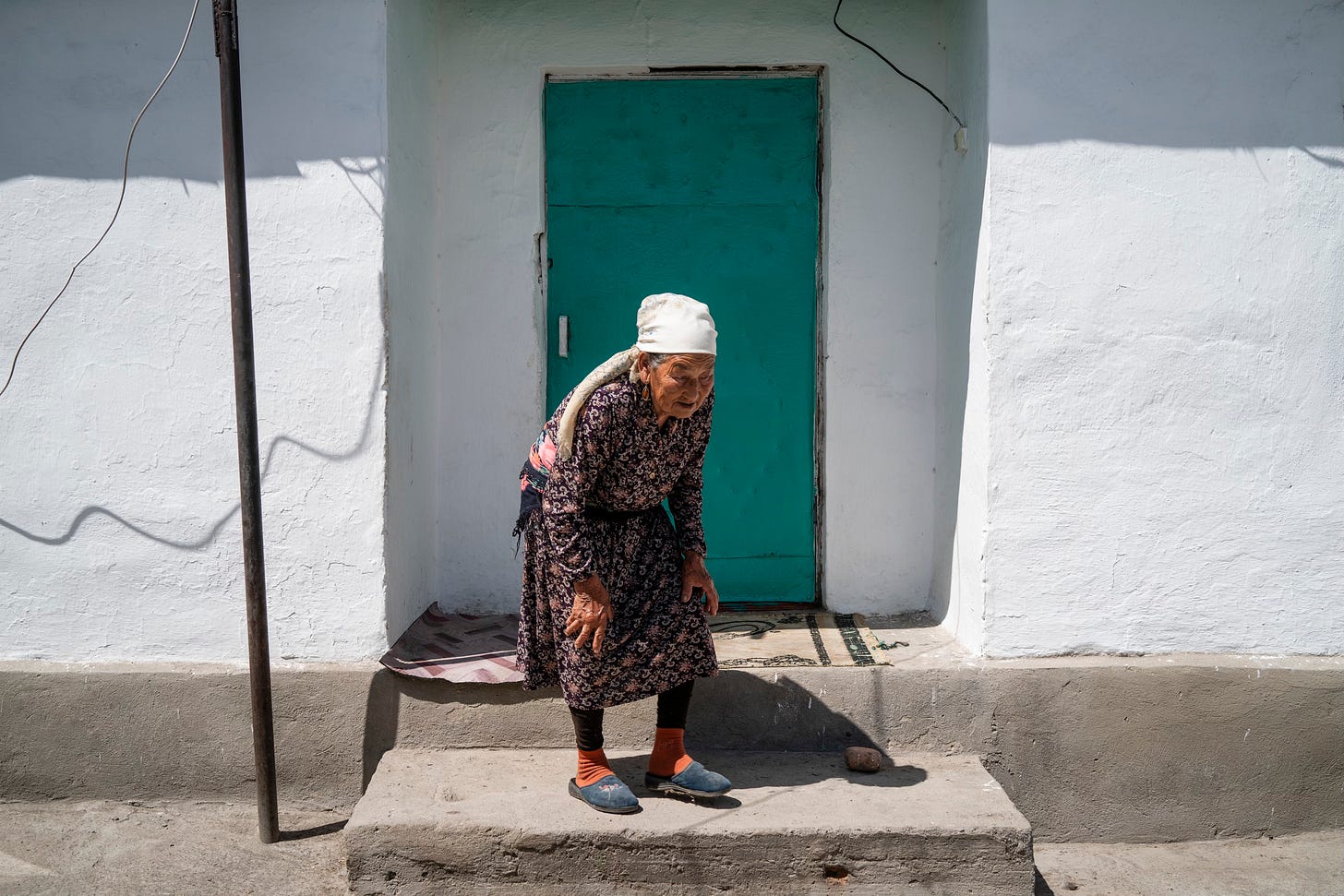
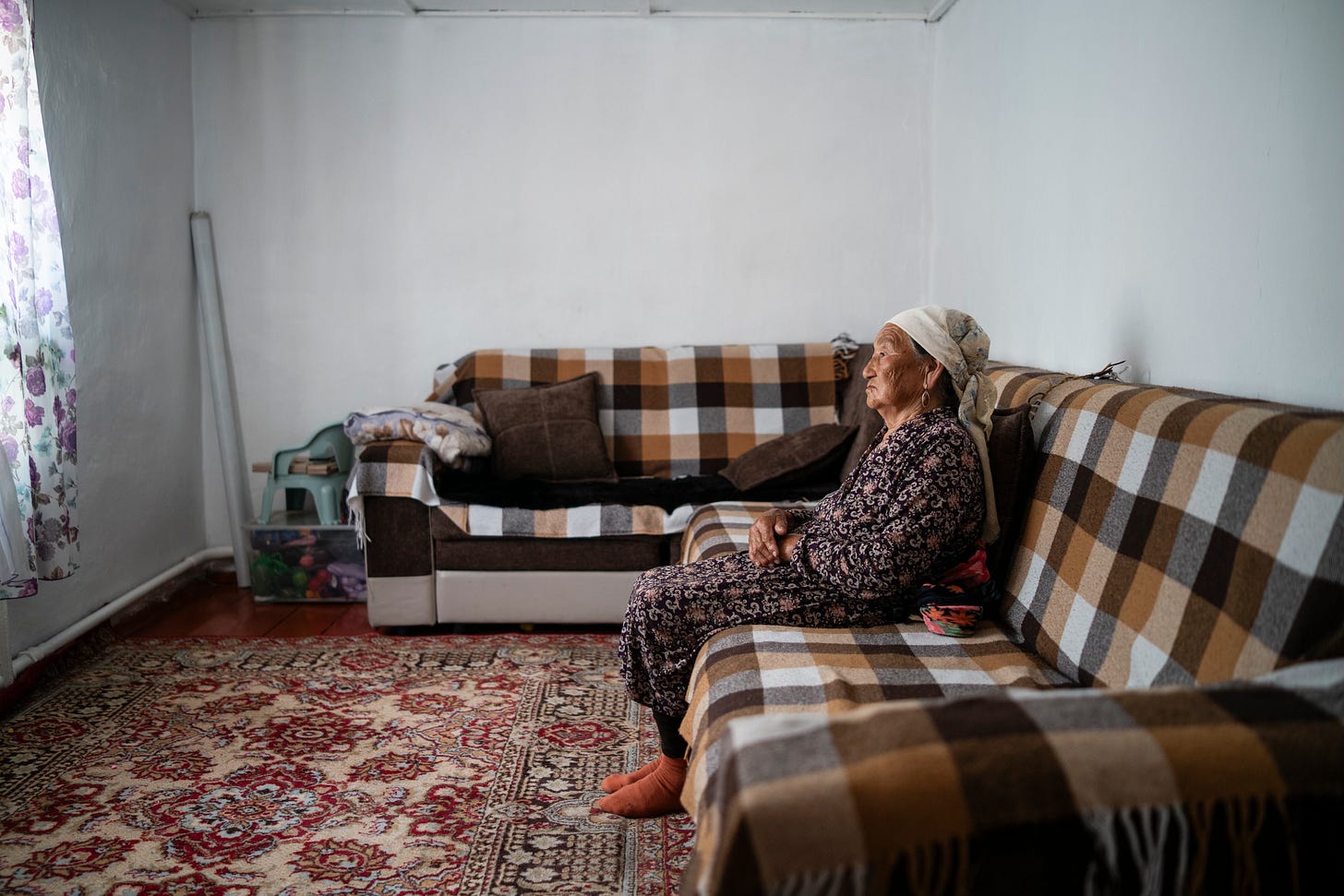









Share this post